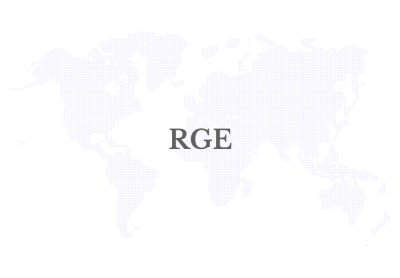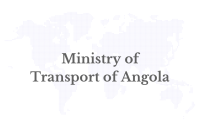Located in Jiangxi Province, in the southeastern part of the country, Poyang Lake plays a critical role in regulating floods in the Yangtze River and supports the livelihoods of more than 45 million people living in the province, contributing more than 15% of the Yangtze River’s annual runoff. It is also a wetland of national and global importance, providing a habitat for flora and fauna of high conservation value, including the critically endangered Siberian crane and finless porpoise.
This new phase marks the fifth year of collaboration between Conservation International, a global non-profit organisation dedicated to protecting nature for the benefit of people and the planet, and Sateri, a leading global producer of textile fibres. The initiative has seen significant successes since it began in 2019, including:
- Strengthening the management of 473,000 hectares of protected areas across 50 ecological zones;
- Enhancing the capability of 2,000 wetland rangers through capacity-building programme;
- Improving the habitat management of 350 species of wildlife, including the critically endangered finless porpoise and Siberian crane;
- Supporting the construction of five community artificial-wetlands for wastewater treatment, which can treat 56,000 tonnes of agricultural and domestic sewage; and
- Benefiting 25,000 local community members through livelihood support, vocational capacity-building and environmental education programmes.
Zhang Cheng, Program Director at Conservation International China, emphasised the project’s broader impact, “This initiative has truly enhanced biodiversity conservation and ecological education, while empowering local communities with sustainable livelihoods. It demonstrates the value of collaborative approaches in balancing ecological protection with human well-being.”
In line with Sateri’s 2030 aspiration of becoming a ‘net positive impact’ company, the newly-launched third phase will advance these successes by focusing on:
- Research on the Freshwater Health Index (FHI) for the basin
- Protection and restoration of small wetlands
- Better climate change mitigation and adaptation for resilience
This collaboration, supported by the Jiujiang Municipal Government of the Jiangxi Province, underscores the shared commitment of both organisations to advancing biodiversity and sustainable development in one of China’s most vital freshwater ecosystems.
The Poyang Lake Basin Ecological Protection Project highlights Sateri’s efforts to address environmental challenges through practical actions and partnerships. The company continues to prioritise biodiversity conservation and sustainability while encouraging collaboration to achieve these goals.
Cai Zhichao, Vice President of Operations at Sateri, emphasised the initiative’s alignment with the company’s sustainability goals, “At the heart of our operations lies a commitment to the bioeconomy, where we aim to protect the natural resources we use. This conservation initiative not only helps us meet our internal sustainability targets but also contributes to advancing the United Nations Sustainable Development Goals (UNSDGs) 6 – Clean Water and Sanitation; 11 – Sustainable Cities and Communities; 12 – Responsible Consumption and Production; 13 – Climate Action and 15 – Life on Land. We accomplish this through innovation, advanced technology and low-carbon practices.”
Notes to Editor
Poyang Lake and its significance
Located in northern Jiangxi Province to the south of the Yangtze River, Poyang Lake is the largest freshwater lake in China, expanding to about six times the size of Singapore during the flood season. This vital ecosystem is home to two Ramsar wetland sites of international significance and serves as a critical habitat for many migratory birds, fish species, and mammals, including approximately 500 Yangtze finless porpoises. The lake is also the largest wintering area for migratory birds in East Asia, supporting 14 endangered waterfowl species such as the critically endangered Siberian Crane, the oriental white stork and Baer’s pochard.
Beyond this ecological importance, Poyang Lake also supports about 45 million people in the basin. The lake contributes more than 15% of the Yangtze River’s annual flow and supplies six million cubic metres of drinking water to millions of the downstream population. The lake provides essential ecosystem services, including flood control and water storage for the Yangtze River Basin, and stores over 8.8 million tonnes of irrecoverable carbon, playing a significant role in climate change adaption.
Hashtag: #RGE #Sateri #ConservationInternational #Poyang #China #Jiujiang #freshwater #conservation #biodiversity #sustainability #UNSDG
The issuer is solely responsible for the content of this announcement.
About Conservation International
Conservation International protects nature for the benefit of humanity. Through science, policy, fieldwork and finance, we spotlight and secure the most important places in nature for the climate, for biodiversity and for people. With offices in 30 countries and projects in more than 100 countries, Conservation International partners with governments, companies, civil society, Indigenous peoples and local communities to help people and nature thrive together. Go to ![]() Conservation.org for more, and follow our work on
Conservation.org for more, and follow our work on ![]() Conservation News,
Conservation News, ![]() Facebook,
Facebook, ![]() Twitter,
Twitter, ![]() TikTok,
TikTok, ![]() Instagram and
Instagram and ![]() YouTube.
YouTube.
About Sateri
Sateri is the world’s largest producer of manmade cellulose fibre (MMCF), a natural biodegradable raw material found in everyday items like textiles, wet wipes and other personal hygiene products. Our five mills in China collectively produce about 2.1 million tonnes of MMCF yearly.
Our range of high-quality viscose products, branded EcoCosy®, is independently verified as a safe, sustainable, and responsibly produced. We also produce textile yarn, spunlace non-woven fabric, Lyocell, and FINEX™, a recycled textile fibre.
Headquartered in Shanghai, we have a sales, marketing and customer service networking covering Asia, Europe, and the Americas.
Sateri is committed to sustainable development, guided by our ![]() Sustainability Policy,
Sustainability Policy, ![]() Pulp Sourcing Policy and global environmental and social standards. Reflecting our commitment to excellence, our achievements include OEKO-TEX® MADE IN GREEN Green which encompasses both OEKO-TEX® STeP and OEKO-TEX® Standard 100, and the EU-BAT (European Union Best Available Techniques) benchmark for best management practices.
Pulp Sourcing Policy and global environmental and social standards. Reflecting our commitment to excellence, our achievements include OEKO-TEX® MADE IN GREEN Green which encompasses both OEKO-TEX® STeP and OEKO-TEX® Standard 100, and the EU-BAT (European Union Best Available Techniques) benchmark for best management practices.




